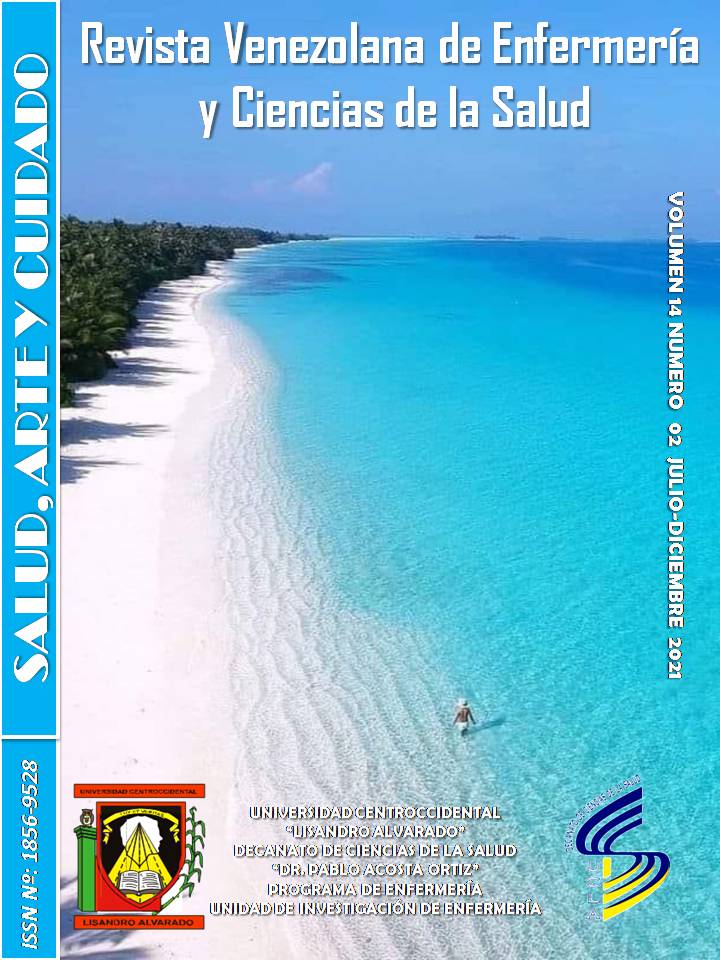Adaptive behaviors of boys and girls with oncological pathology.
DOI:
https://doi.org/10.5281/zenodo.7017930Abstract
The purpose of this research was to reveal a corpus of adaptive strategies to parents and representatives of children with oncological pathology. For this purpose, the methodology assumed qualitative research in the hermeneutic phenomenological method. The key informants were 1 child, 1 parent or representative and 1 nursing staff. In reference to the source of information, it was the Hospital Universitario Pediátrico Agustín Zubillaga. For data collection, the interview and participant observation techniques were used. In addition, a semi-structured questionnaire-type instrument was developed that was applied to the children of the Dr. Agustín Zubillaga Pediatric University Hospital, specifically the oncology area. In this sense, to interpret from subjectivity, it was possible to explore, interpret and understand the experiences lived by the social actors from the beginning of the disease to their current life with it in the phenomenon under study. The information was interpreted in categories in order to make comparisons and a dialectical approach so that the information was organized and presented following an emerging guideline or regularity. Allowing to reflect that fathers, mothers and representatives as the only responsible guarantor of the biopsychosocial health of children, must stimulate favorable behaviors in the strengthening of physical and emotional well-being, through the various activities of motivation, integration, recreation, education and information. Hence, the needs presented by fathers, mothers and representatives are established with the purpose of setting action plans on specific aspects in the adaptive behaviors of children with oncological pathology, in order to create a corpus of adaptive strategies that allow them to have an effective and affective communication with the infants, for a good biopsychosocial development of the same.
Downloads
Published
How to Cite
Issue
Section

This work is licensed under a Creative Commons Attribution-NonCommercial-ShareAlike 4.0 International License.
Derechos del/de autor/es a partir del año de publicación
Esta obra está bajo la licencia:
Creative Commons Reconocimiento-NoComercial-CompartirIgual 4.0 Internacional (CC BY-NC-SA 4.0)
Las opiniones expresadas por los autores no necesariamente reflejan la postura del editor de la publicación ni de la UCLA. Se autoriza la reproducción total o parcial de los textos aquí publicados, siempre y cuando se cite la fuente completa y la dirección electrónica de esta revista. Los autores(as) tienen el derecho de utilizar sus artículos para cualquier propósito siempre y cuando se realice sin fines de lucro. Los autores(as) pueden publicar en internet o cualquier otro medio la versión final aprobada de su trabajo, luego que esta ha sido publicada en esta revista.







